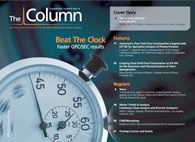Agilent acquisition
Agilent Technologies Inc. (Santa Clara, California, USA) has announced that it has completed its acquisition of cancer diagnostics company Dako (Glostrup, Denmark).
Agilent Technologies Inc. (Santa Clara, California, USA) has announced that it has completed its acquisition of cancer diagnostics company Dako (Glostrup, Denmark). Agilent expects the acquisition to help strengthen their position in life sciences, with a particular focus on product development to help in the fight against cancer.
Bill Sullivan, Agilent president and CEO, said: “The acquisition of Dako, the largest in Agilent’s history, is another step in the expansion of our life science business. The addition of Dako and its portfolio will help Agilent accelerate growth in several rapidly expanding areas of diagnostics, as well as strengthen our existing offerings. I look forward to the exciting possibilities ahead.”
Lars Holmkvist, Dako CEO, said: “Agilent and Dako have some of the best talent and technology in the world. By combining resources, we believe that both of our companies will benefit, as will our customers and employees. I have great confidence in what we will be able to accomplish together.”
For more information please visit www.agilent.com
This story originally appeared in The Column. Click here to view that issue.

Regulatory Deadlines and Supply Chain Challenges Take Center Stage in Nitrosamine Discussion
April 10th 2025During an LCGC International peer exchange, Aloka Srinivasan, Mayank Bhanti, and Amber Burch discussed the regulatory deadlines and supply chain challenges that come with nitrosamine analysis.










